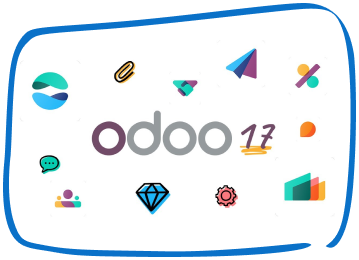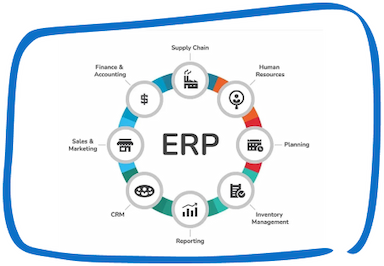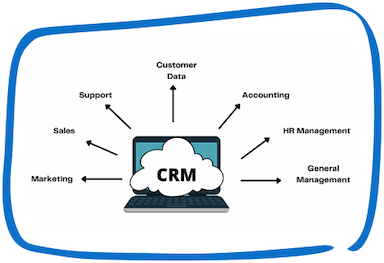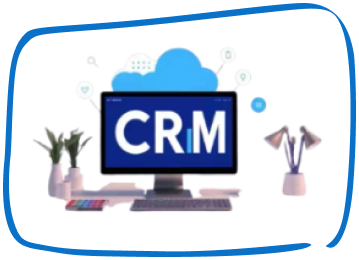Enterprise Resource Planning (ERP) is software that organizations exercise to manage day-to-day business activities such as accounting, project management, risk management and supply chain. The manual way of organizing the activities consume more time and leads to the risk of missing or mistake in the data. As the company grows, it is tedious to maintain the document offline and it is necessary to go beyond with daily activities and set a goal for future business growth.
ERP Dubai automates the business process, provides insights and control within all departments in the organization. The owners/admin have the access to view the data’s collected and analyze the scenario for improvement and achieving the goals. The main benefit of ERP are
- Save money – with ERP it is easy to collect the information and unifies the system.
- Improved collaboration – ERP provides a centralized database that reduces errors brought by incorrect data.
- Better analytics– ERP makes it easier to generate various reports that reduce the time and improves the efficiency of the employee. They also provide a various dashboard that is simple to use and provides the needed reports.
- Improves productivity – in the manual method, generating a report or maintaining the activities is a long process and also may have errors. ERP automates all the activities which makes it easier to fetch the report and expendable tasks.
- Happy customers – when customers are satisfied business flourishes automatically. ERP software Dubai is integrated with the Customer Relation Management (CRM) which manages all the data functions to provide client-centered services.
- Risk management – ERP provides manages risk by providing reliability and accuracy over the financial that reduces the errors during accounting.
- Improves production planning – ERP Dubai provides the perception of all the manufacturing activities that allows the admin to optimize the production schedule and improve the employee’s capacity.
To ensure the integration process within the organization ERP Dubai provides centralized databases that have a standard schema. This helps to access the data across the enterprise with the constant workflow. For example: consider a company that produces juice by procuring various fruits from other vendors. ERP Software in Dubai helps to track the entire process from the order of fruits to the juice dispatched. Each purchase done, the juice produced, fruits used will be maintained in the database. If there is an any error in the productivity can be found from the ERP and eliminated efficiently.
ERP Software in Dubai improves the business process solving many problems faced in the organization by
- Implementing one master record for the company data,
- Automating the process such as a financial report, invoice creation and planning
- Higher data security
- Enhanced visibility to all the process
When a company has modules for each of the business functions, ERP delivers the best value with accuracy and efficient time management. The optimization of the operations is done with the system and data connection into the single database.
Major three ways ERP provides to achieve productivity in an organization as adequate performance, accelerate operational impact and ensure business agility. The modules in the ERP should be based on the organization’s activities. Some of the most common modules in ERP software are:
- Finance
- Procurement
- Manufacturing
- Inventory management
- Order management
- Supply chain management
- Customer relation management (CRM)
- Project management
- Workforce management
- Human resource management
- Marketing automation
ERP Solution UAE implementation requires proper planning for the implementation. The workflow of the organization should be analyzed and planned accordingly. The stages of implementation include
- Discovery and planning – identifying and determining the needs of the organization to improve the business growth.
- Evaluation and selection – meet all the departments of the organization and analyze the data and modules to be done.
- Design – based on the evaluation and the data being collected, the implementation of the software is being done.
- Development – involves the migration of the data required for the company
- Testing – it is important to ensure the modules work as being required and changes to be made if required.
- Deployment – after the successful testing, developed ERP is deployed to the organization and the business should deploy training to mitigate the data.
- Support – ensures to provide the user everything to solve the problems that arise.
An ERP software with all the required modules will provide enterprise planning, customer satisfaction and control over all the processes in the business.
Speak with Our Team!
4.9 Stars
1k+ reviews on






